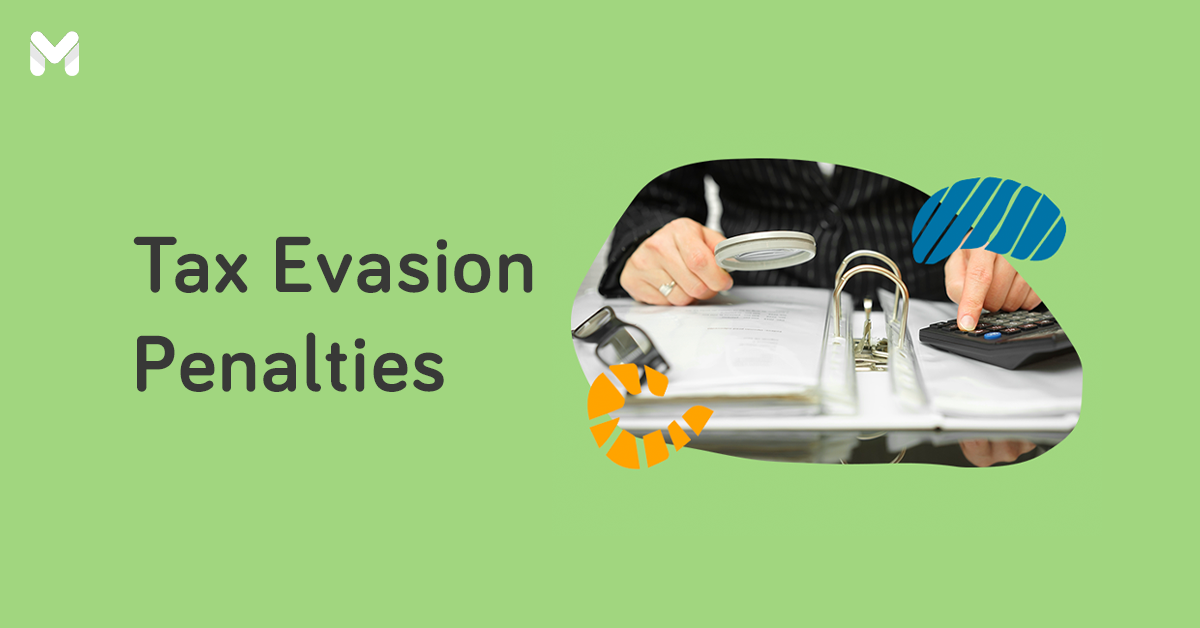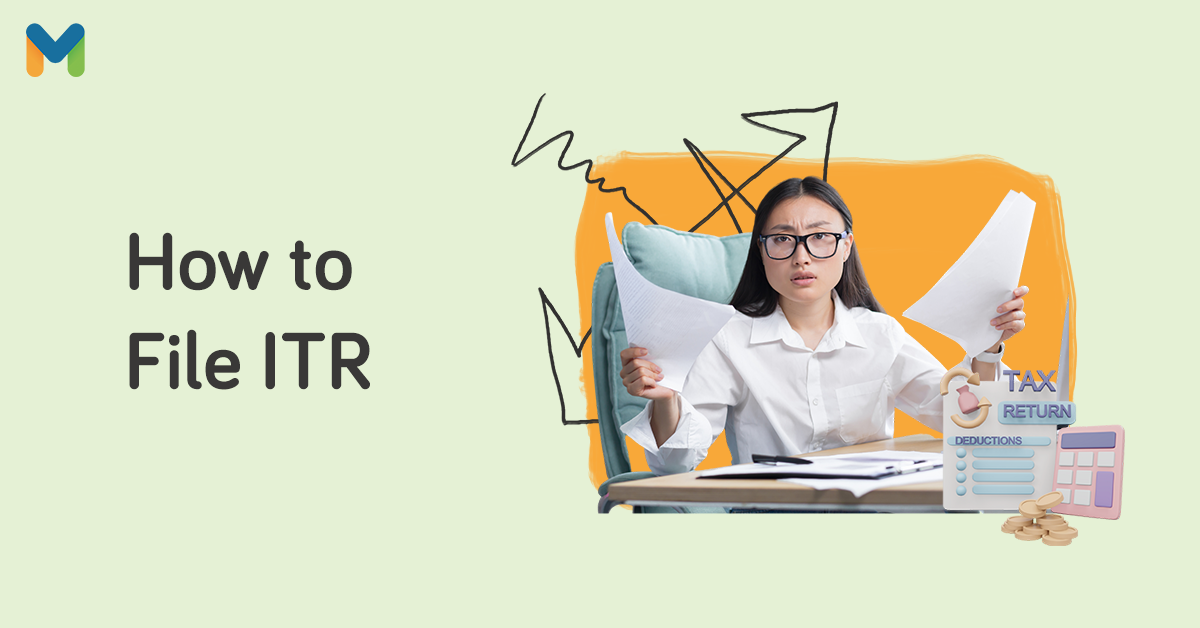American genius Benjamin Franklin once said that nothing's certain except death and taxes.[1] More than 200 years later, his wise words still ring true.
Even in the event of your passing, you’ll still be troubled with taxes—only this time, the family you’ve left behind will be the ones dealing with them. Such is a payable called estate tax.
Knowing your estate taxes will help you prepare your family for what they’ll need to settle financially when you pass. On your end, it will help you come up with a smart transfer plan, which in turn will result in lower estate taxes.
Keep reading if you’re ready to learn more about estate tax in the Philippines.
What is Estate Tax in the Philippines?

The Bureau of Internal Revenue (BIR) defines estate tax as a tax on the right of the deceased person to transmit their estate to their lawful heirs and beneficiaries at the time of death and on certain transfers.
In the Philippines, the meaning of estate tax is this: in case a person dies, transferring their properties and assets to their family will require a tax payment.
Wondering what's the difference between estate tax vs inheritance tax? Nothing—estate tax and inheritance tax in the Philippines are one and the same.
But don’t confuse it with real property tax, which is associated with real estate. It's also called amilyar, which is a tax on the value of a real estate property.
Read more: Ask Moneymax: What are the Types of Taxes in the Philippines?
Who Pays for the Estate Tax in the Philippines?
Obviously, the dead won’t be able to pay the estate tax. The people left behind, namely the executor, administrator, or heirs, will be responsible for the filing of the estate tax return.
How to Compute Estate Tax in the Philippines
-Jun-07-2023-06-41-51-1478-AM.png?width=674&height=449&name=Pics%20for%20blog%20-%20600x400%20(12)-Jun-07-2023-06-41-51-1478-AM.png)
How much is the inheritance tax in the Philippines? Before computing the estate tax, it’s important to know the difference between gross estate and net tax. Here’s a brief explainer:
👉 Gross Estate
Gross estate refers to the overall value of the deceased person’s properties and assets before liabilities and taxes are subtracted. The estate includes the following assets regardless of their location: real properties, tangible personal properties, and intangible personal properties.
Take note that certain assets, such as GSIS benefits, SSS accruals, war damage payments, proceeds of life insurance where the beneficiary is irrevocably appointed, and the like are excluded from the gross estate.
👉 Net Estate
Net estate, on the other hand, is basically what’s left of the gross estate after all the allowable deductions are subtracted from it. Common deductions include the standard deduction in the amount of ₱5 million; claims against the estate, such as debts; unpaid mortgages, taxes, and casualty losses; and the family home, which is equivalent to its current fair market value.
Likewise, the property previously taxed, transfers for public use, the amount received by heirs under Republic Act No. 4917, and the net share of the surviving spouse in the case of conjugal partnership or community property are all considered allowable deductions when computing the net estate.
👉 Computing the Estate Tax
Now that you know the difference between gross estate and net estate, it’s time to compute the estate tax. Estate tax in the Philippines is 6% of the net estate.
After you get the net estate, multiply the resulting amount by 0.06. The amount that you’ll get from this computation will be the estate tax.
Net Estate x 0.06 = Estate Tax
Take this situation for example: Say you receive an inheritance worth ₱5 million with liabilities and deductions worth ₱1.5 million. After subtracting all the liabilities from the gross estate, you’re left with a net estate of ₱3.5 million.
Since estate tax is 6% of your net estate, multiply your ₱3.5 million by 0.06. You’ll then get ₱210,000, which will be your estate tax.
Note: The rate applicable will be based on the law that’s implemented at the time of the deceased person’s death.
What are the Requirements for Paying Estate Tax in the Philippines?
-Jun-07-2023-06-46-14-4680-AM.png?width=600&height=400&name=Pics%20for%20blog%20-%20600x400%20(13)-Jun-07-2023-06-46-14-4680-AM.png)
Truth be told, dealing with your deceased loved one’s estate requires a lot of documents. Here are the estate tax requirements in the Philippines:
- Estate Tax Return Form (BIR Form 1801)
- Certified true copy of Death Certificate
- Taxpayer Identification Number (TIN) of the deceased and their heir
- Affidavit of Self Adjudication, Deed of Extra-Judicial Settlement of Estate, Court Order, or Sworn Declaration of All Properties of the Estate
- Certified copy of the schedule of partition and the order of the court approving the same within thirty (30) days after the promulgation of such order, in case of judicial settlement
- Proof of Claimed Tax Credit (if applicable)
- Certified Public Accountant (CPA) Statement on the itemized assets of the deceased
- Certification of the Barangay Captain for the claimed Family Home
- Duly Notarized Promissory Note for “Claims Against the Estate” arising from Contract of Loan
- Accounting of the proceeds of loan contracted within three (3) years prior to death of the deceased
- Proof of the claimed Property Previously Taxed
- Proof of the claimed Transfer for Public Use
- Copy of Tax Debit Memo used as payment (if applicable)
Keep in mind that the BIR may require additional documents, depending on the type of property that needs to be transferred. If you have questions regarding estate tax requirements, you may contact BIR’s Customer Assistance Division at 8538-3200. You may also reach them via email at contact_us@bir.gov.ph.
How to File for Estate Tax Return
The executor of the estate must file for Estate Tax Return (BIR Form 1801) within one year of the deceased person’s death. However, the BIR Commissioner can grant an extension of filing of up to 30 days. The estate will also be assigned its own Tax Identification Number (TIN).
If you're the executor, you need to file the estate tax return with an Authorized Agent Bank (AAB) at the Revenue District Office (RDO) that has jurisdiction over the deceased’s place of residence when they died.
However, if the deceased has no legal residence in the country, you must file the estate tax return with the Office of the Commissioner at RDO No. 39, South Quezon City. You can also file the return to an AAB located at the RDO where you live if the heirs or beneficiaries aren't residents of the Philippines.
Note: The due date for payment of tax and filing of the return will depend on the applicable law at the time of the deceased person's death.
What are Some Common Estate Tax Problems?
-Jun-07-2023-06-48-38-8066-AM.png?width=674&height=449&name=Pics%20for%20blog%20-%20600x400%20(14)-Jun-07-2023-06-48-38-8066-AM.png)
Estate tax is full of layers which sometimes lead to a multitude of problems concerning payments. Below are two of the most common problems regarding estate taxes.
However, remember that other issues may arise depending on your case. When that happens, it’s important to seek the help of a tax expert or even a lawyer.
👉 Insufficient Funds for Payment
Some people want to settle the total estate tax due but don’t have enough money. If this is the case, know that the BIR allows installment payments for up to two years from the statutory date for its payment. Upon approval by the concerned BIR Official, you may be exempted from civil penalty and interest.
👉 Hefty Estate Tax
Estate taxes can be humongous, so it’s not common to hear stories of people having a hard time dealing with them. Back then, tax rates weren't uniform. That meant you could find a way to reduce your estate tax legally.
You can try selling your assets or turning them over to your intended beneficiaries while you’re still living. But tread carefully, as this may have a minimal effect. This is because capital gains tax and donor’s tax have the same rate as estate tax at 6% due to the TRAIN Law.
You may consider getting life insurance and making your heirs your beneficiaries of the policy. Your assets will then be passed on to them in the event of your demise. They can use the policy’s proceeds to pay the estate tax.
When you die, your insurance proceeds are transferred to your beneficiaries in full. These are also exempted from estate tax if the beneficiaries are assigned as irrevocable.
But if the estate tax still proves to be insurmountable, you may consider applying for the estate amnesty program.
Read more: How Much is the Income Tax in the Philippines Under TRAIN Law?
Estate Tax in the Philippines FAQs
Sure enough, estate tax can be confusing. If you still have some concerns or questions regarding it, refer to the items below and you might find the answers you’re looking for:
1. What will happen if the estate tax is not paid?
Not paying the correct estate tax within a given period of time comes with some consequences. For one, the estate will be subjected to interests, surcharges, and similar fees.
The assets and properties of the deceased won’t be transferred to you and your fellow heirs. Likewise, you won’t be allowed to divide, distribute, or even sell the properties and assets included in the estate.
Read more: What Happens If I Don’t Pay My Taxes? Tax Evasion Penalties Every Taxpayer Must Know
2. What is Estate Tax Amnesty?
In 2019, then-President Rodrigo Duterte inked the Republic Act (RA) 11213, or the Tax Amnesty Act of 2019. Through it, heirs with outstanding estate tax liabilities can settle their taxes at the usual rate without additional penalties.[2] The amnesty was active for two years before it expired on June 14, 2021.
RA 11569 then amended RA 11213 to extend the effectivity of the estate tax amnesty program for two more years. This means you can settle your estate taxes until June 14, 2023.[3]
However, the Senate recently approved another bill to extend estate tax amnesty by two more years—thus moving the deadline to June 14, 2025. Should it become a law, heirs with unsettled estates can pay through installments within two years without civil penalty and interest. The law will also cover the estates of those who died on or before May 31, 2022.[4]
3. When is the deadline for the Estate Tax Amnesty?
The deadline for settling your estate tax is on June 14, 2023. Should the proposed bill become law, the new BIR estate tax amnesty deadline extension will be on June 14, 2025.
Read more: How to Pay Taxes in the Philippines with BIR Online Payment Channels
Final Thoughts
Everyone wants to leave a legacy, but it’s also important to know that leaving such a legacy can financially affect your loved ones. Learning about estate tax in the Philippines can help you plan your estate for the inevitable, making sure that your loved ones are taken care of even when you’re gone.

Sources:
- [1] Benjamin Franklin’s Last Great Quote and the Constitution (Constitution Daily, 2021)
- [2] Revisiting the Estate Tax Amnesty and its Current Status (Manila Times, 2021)
- [3] Estate Tax Amnesty Extended Until June 2023 (Philippine News Agency, 2021)
- [4] Senate approves bill extending estate tax amnesty until 2025 (Rappler, 2023)









